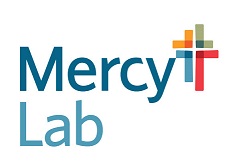| A B C D E F G H I J K L M N O P Q R S T U V W X Y Z # |
URETHRITIS PANEL, MALE
Test CodeLAB4086
Quest Code
36964
CPT Codes
87494, 87661, 87563<br><strong>CPT coding may differ dependent on payer rules which may impact prior authorization testing.</strong><br><strong>Please direct any questions regarding CPT coding to the payer being billed.</strong>
Includes
Chlamydia/Neisseria gonorrhoeae RNA, TMA, Urogenital
Trichomonas vaginalis RNA, Qualitative, TMA, Males
Mycoplasma genitalium, rRNA, TMA
Trichomonas vaginalis RNA, Qualitative, TMA, Males
Mycoplasma genitalium, rRNA, TMA
Preferred Specimen
2 mL urine collected in an Aptima® transport tube or
Urethral swab collected in an Aptima® transport tube
Urethral swab collected in an Aptima® transport tube
Patient Preparation
Male urine: Patient should not have urinated within one hour prior to collection
Instructions
Male urine: Direct patient to provide first-catch urine (a maximum of 20-30 mL of the initial urine stream) into a urine collection cup free of any preservatives. 2 mL of urine specimen must be transferred into the Aptima specimen transport within 24 hours of collection and before being assayed. Use tube provided in the urine specimen collection kit. The fluid (urine plus transport media) level in the urine tube must fall within the clear pane on the tube label.
Male urethral swab: Follow instructions in the Aptima Unisex Swab Specimen Collection Kit for Endocervical and Urethral Swab Specimens package insert.
Male urethral swab: Follow instructions in the Aptima Unisex Swab Specimen Collection Kit for Endocervical and Urethral Swab Specimens package insert.
Transport Container
Aptima transport tube
Transport Temperature
Room temperature
Specimen Stability
Room temperature: 14 days
Refrigerated: 14 days
Frozen: 30 days
Refrigerated: 14 days
Frozen: 30 days
Reject Criteria (Eg, hemolysis? Lipemia? Thaw/Other?)
Transport tube with 2 swabs • Transport tubes with non-Aptima swabs • Swab transport tubes with no swab • Swab submitted in non-Aptima transport containers • Urine samples where the fluid level is not between the black fill lines • Urine submitted in non-Aptima transport container • Female urine • Patients less than 15 years of age
Methodology
Transcription-Mediated Amplification (TMA)
FDA Status
Trichomonas vaginalis RNA, Qualitative, TMA, Males: The analytical performance characteristics of this assay have been determined by Quest Diagnostics. The modifications have not been cleared or approved by the FDA. This assay has been validated pursuant to the CLIA regulations and is used for clinical purposes.
Reference Range
| Chlamydia trachomatis RNA, TMA, Urogenital | Not detected |
| Neisseria gonorrhoeae RNA, TMA, Urogenital | Not detected |
| Trichomonas vaginalis RNA, QL, TMA, Males | Not detected |
| Mycoplasma genitalium, rRNA, TMA | Not detected |
Clinical Significance
Urethritis is an inflammation of the urethra and is often due to sexually transmitted infections. It may be caused by Chlamydia trachomatis, Neisseria gonorrhoeae, Trichomonas vaginalis and/or Mycoplasma genitalium. The symptoms are a burning sensation while urinating, itching or burning near the opening of the penis, presence of blood in the semen or urine and discharge from the penis. A panel will help the clinician identify the cause of these symptoms.
Performing Laboratory
| Quest Diagnostics-Lenexa |
| 10101 Renner Blvd |
| Lenexa, KS 66219-9752 |
Last Updated: June 7, 2024

